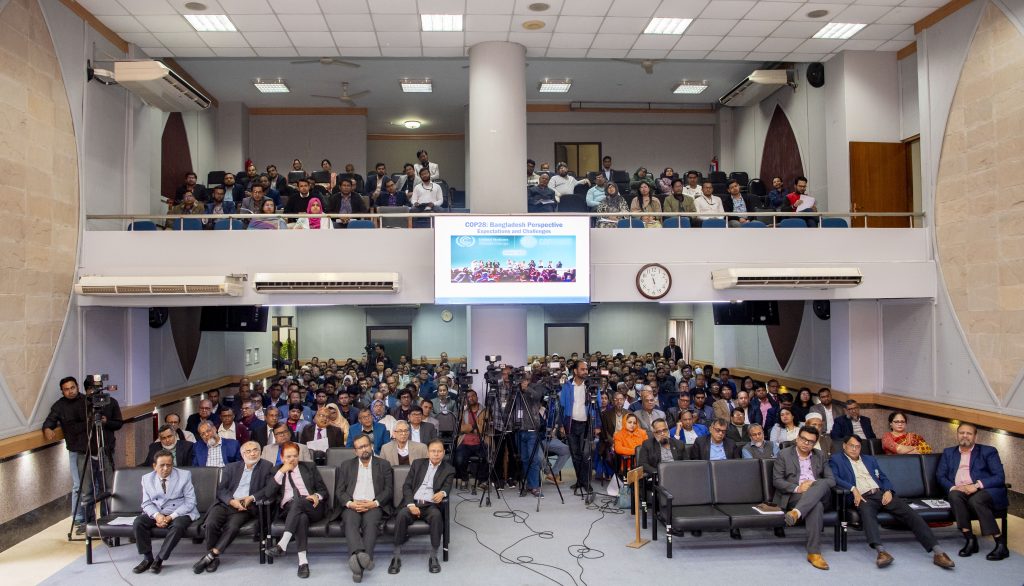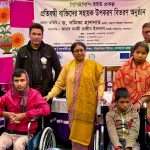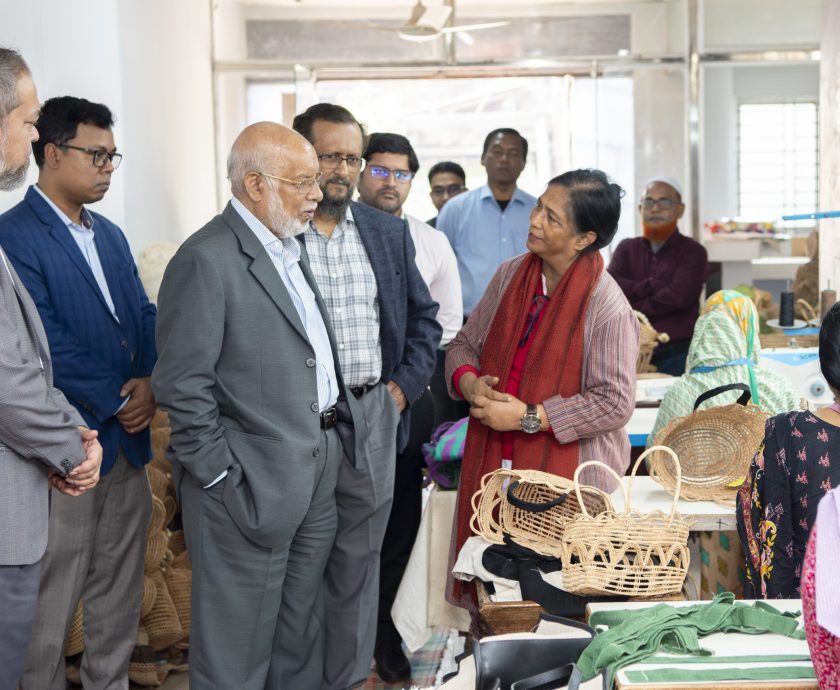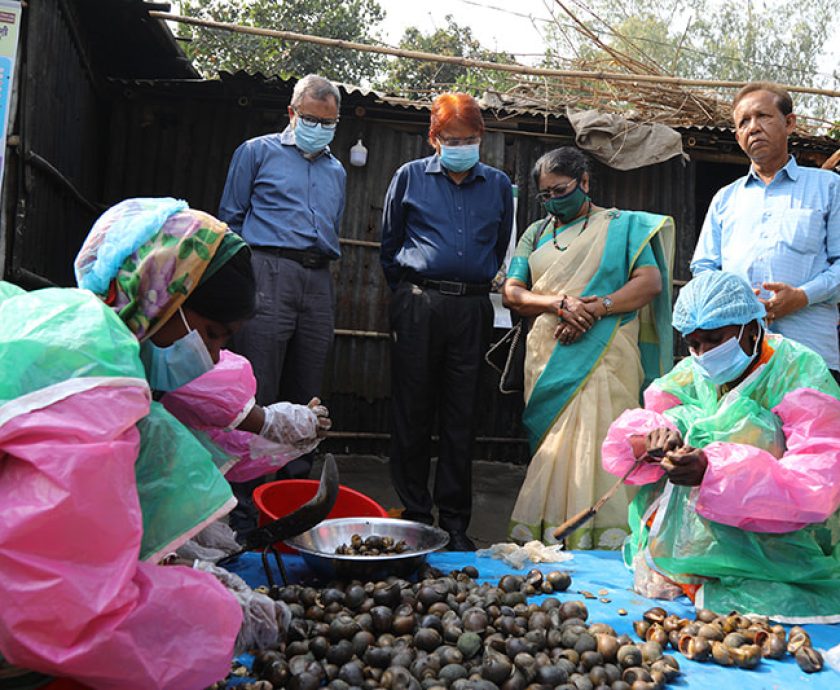Despite limited resources, Bangladesh relentlessly working to combat climate change fallout, say speakers at post-COP-28 event by PKSF
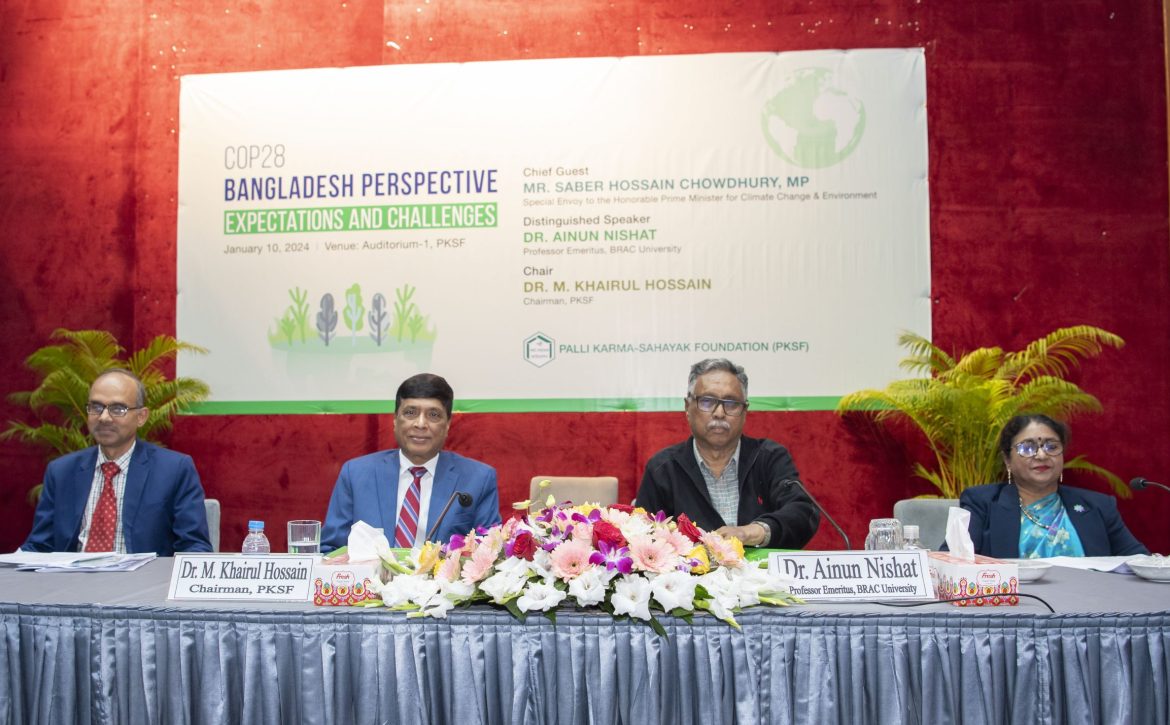
Despite limited resources, different ministries and departments of the Government of Bangladesh (GoB) are formulating and implementing various plans to deal with and mitigate the impacts of climate change. Speakers expressed this view at a discussion meeting titled ‘COP-28: Bangladesh Perspective: Expectations and Challenges’ held on 10 January 2024 at PKSF Bhaban in Agargaon, Dhaka.
PKSF Chairman Dr M Khairul Hossain presided over the event where BRAC University’s Emeritus Professor Dr Ainun Nishat was the Distinguished Speaker and PKSF Managing Director Dr Nomita Halder ndc gave the welcome remarks. PKSF’s Deputy Managing Director Dr Fazle Rabbi Sadeque Ahmed presented on Bangladesh’s experience at COP-28 held in UAE in November last year.
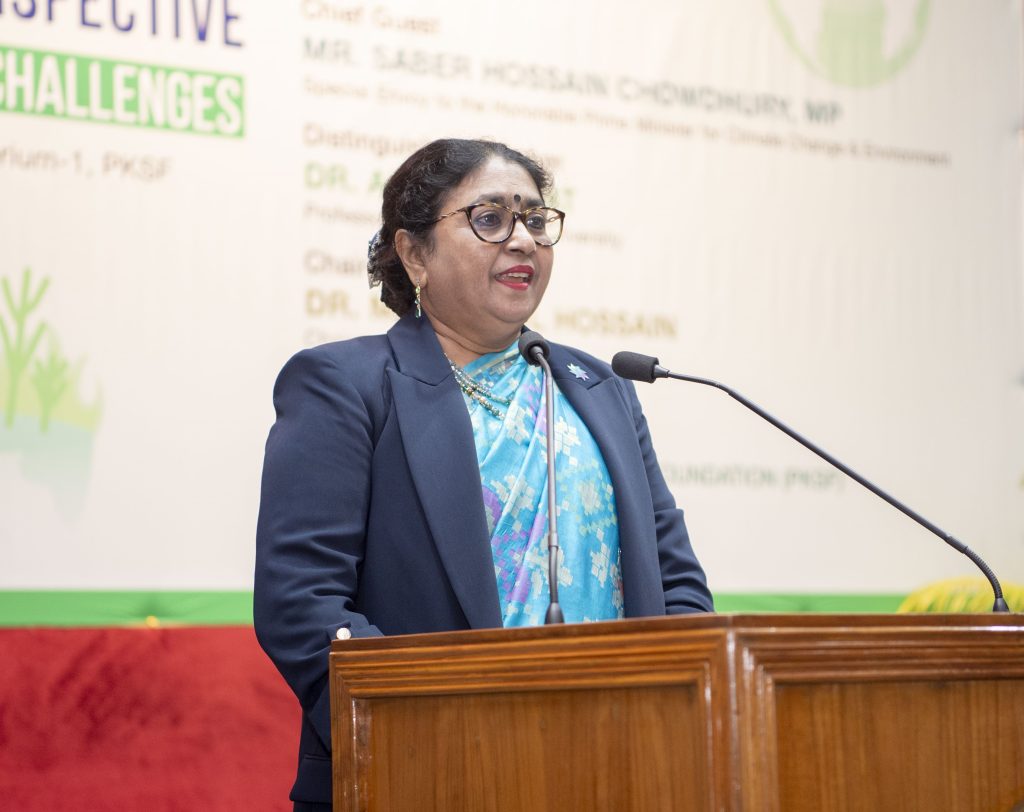
In the welcome remarks, Dr Nomita Halder ndc, Managing Director of PKSF, said that PKSF is implementing different activities to protect the poor and the extreme poor who are vulnerable to climate change impacts. In recognition of the efficiency and transparency of these activities, PKSF has already been recognized as the Direct Access Entity of the Green Climate Fund (GCF) and a National Implementing Entity of the Adaptation Fund under the United Nations. She expressed her hope that PKSF would receive funding in future from the ‘Loss and Damage Fund’ promised at COP-28.
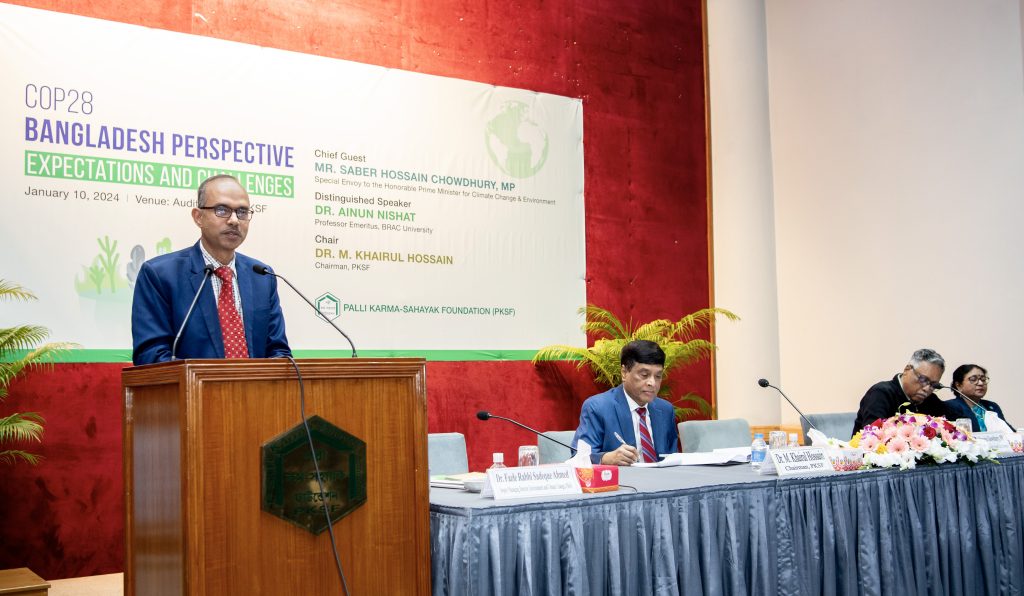
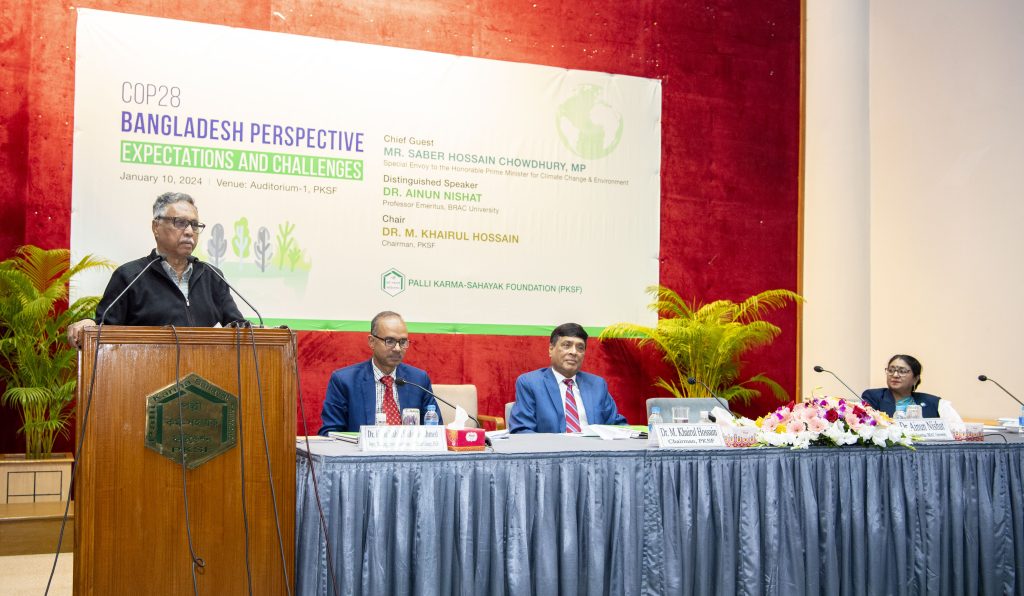
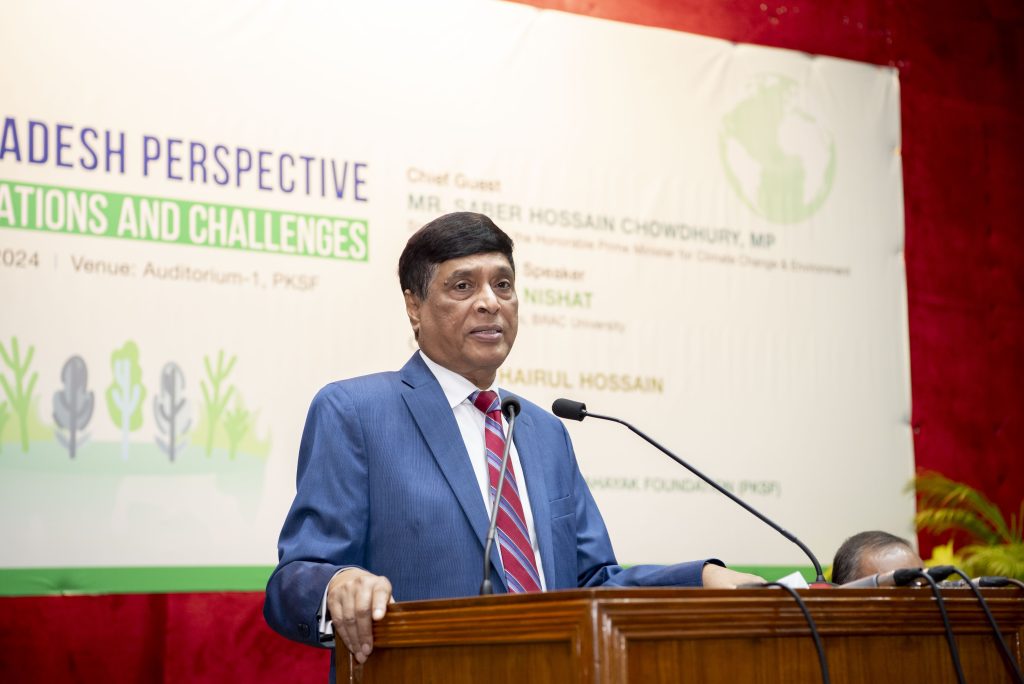
Dr M Khairul Hossain said, instead of waiting for assistance from international communities, the GoB has formulated the Mujib Climate Prosperity Plan, the National Adaptation Plan and the National Adaptation Program of Action to deal with the growing effects of climate change. The implementation of these plans is currently underway as well. In recognition of such courageous and effective initiatives, Hon’ble Prime Minister Sheikh Hasina was awarded the ‘Asia Climate Mobility Champion Leader Award’ at the COP-28 conference, which is undoubtedly a matter of pride for Bangladesh.
Although Bangladesh is not responsible for climate change, the country is incurring losses equal to USD 4.5-5 billion every year, added Dr Hossain. PKSF is implementing various activities to increase the coping capability of those living in climate-vulnerable regions, particularly of the poor. PKSF has established an ‘Environment and Climate Change Unit’ to effectively implement these activities.
A ‘Knowledge Hub’, with extensive data and other documents on climate change, was launched at this event. The Hub is accessible for all on the PKSF website.
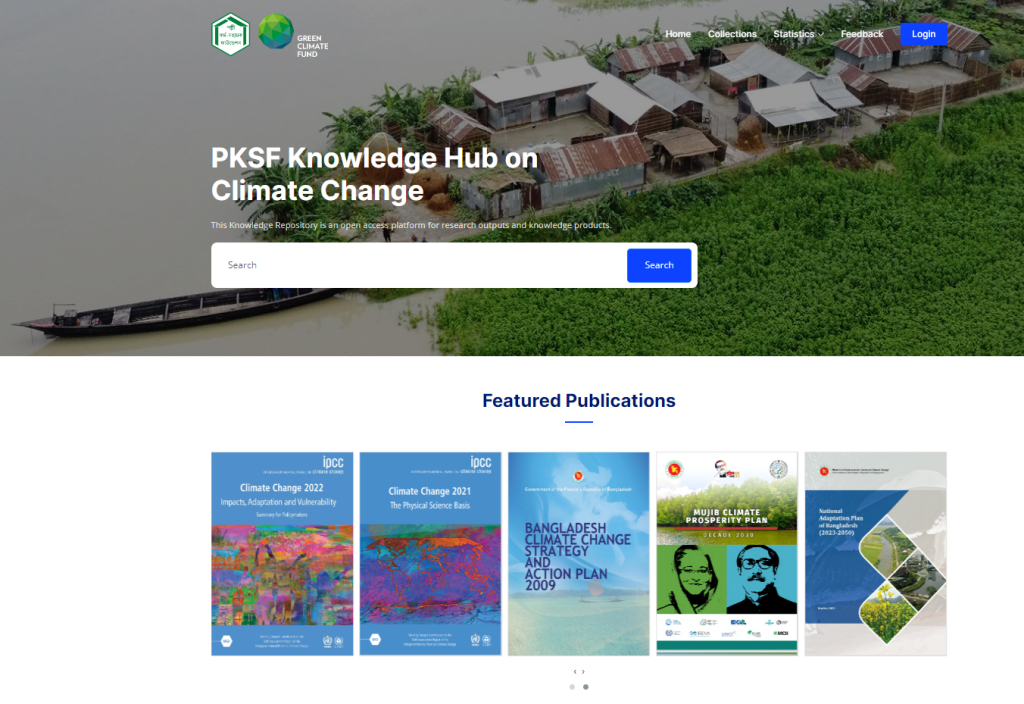
Dr Ainun Nishat emphasized on the importance of conducting environmental surveys before undertaking any infrastructure development project. He said that now that Bangladesh has graduated from the list of Least Developed Countries (LDCs), the country needs to start finding new allies in international climate discussions. He said that biodiversity and agricultural production are in serious threat due to the changes in the course and timing of monsoons in recent years. Emphasizing on the need for adaptation, mitigation, financing and capacity building to address climate change impacts, he said that, as a source of renewable energy in Bangladesh, wind power generation opportunities can be explored by installing wind turbines in the coastal areas.
